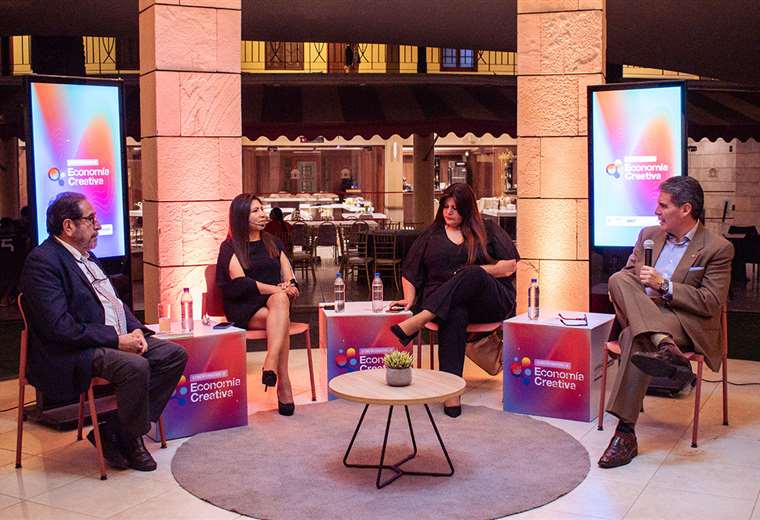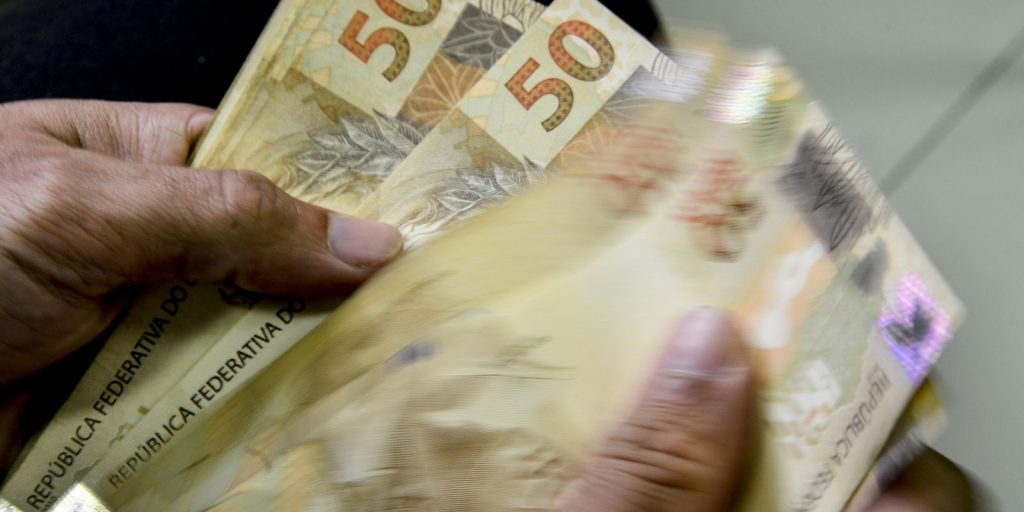November 25, 2024, 9:12 AM
November 25, 2024, 9:12 AM
Innovation and creativity are transforming world economies and Bolivia is no stranger to this process. However, the country faces the challenge of diversifying its productive matrix, historically dependent on extractivism. In this context, the creative economy emerges as a viable alternative that combines talent, culture and technology to generate sustainable development and job opportunities.
Within the framework of the II International Forum of Creative Economy, organized by the Franz Tamayo University, Unifranz, the renowned journalists John Arandia, Angélica Lazarte, Juan Cristóbal Soruco and Beatriz Cahuasa reflected on Bolivia’s potential in this area, highlighting both the challenges and the opportunities that the creative economy presents for the country.
For Cahuasa, the construction of the conditions for this economy is only possible through the link between the State and society. “State and society, we need to build an ecosystem of entrepreneurship and that refers to educating, to generating financial economy from educational units, that really see flows, income and expenses and, finally, can build an enterprise with economic purposes.”
The four journalists agreed that Cochabamba is emerging as a strategic point in the export of work in software and art. “We not only manage software for Bolivia, but we also manage it outside the country,” says Cahuasa.
Bolivian creativity: from necessity to opportunity
Arandia considers that, in Bolivia, creativity is a very abundant resource, but that it is often focused on survival, rather than sustained growth.
“Bolivians do not die of hunger because they find creative solutions to survive. But this creativity could be exploited to grow sustainably and for that it requires conditions,” he stated.
Bolivia, according to Arandia, has inexhaustible resources such as its culture, its talents and the creativity of its people, which, together with global access to technology, offer a solid foundation to develop a creative economy. However, he warned about the lack of state policies and institutionalization that allow this vision to be realized. “We lack political will and awareness that this is possible,” he emphasizes.
Lazarte, journalist and opinion leader, highlights the relevance of education to promote the creative economy. He criticized the current educational model, calling it “vertical,” and advocated for a system that allows students to be critical, creative, and dreamers.
In his speech, Lazarte highlighted specific examples of Bolivian talent, such as young people from Cochabamba who develop software and video games for international markets from their homes.
According to the Agency for Electronic Government and Information and Communication Technologies (Agetic), software development represents income of more than 30 million dollars annually in Cochabamba, despite the lack of state support. “This sector is a clear example of how we can generate income without depending exclusively on natural resources,” says Lazarte.
For the journalist, the key is that the State not only encourages entrepreneurship, but at least stops hindering it. “In Bolivia, being formal and generating an economy seems like a sin. The first step is not to get in the way,” he concluded.
Cochabamba, known as an emerging technology hub in Bolivia, exemplifies how local talent is making a difference in the creative economy. Young programmers are developing software and video games for international markets from garages or small offices in the city.
However, structural challenges remain. The lack of tax incentives and bureaucratic obstacles are barriers faced by those who want to start a business. In the words of Lazarte, “the State does not need to do everything, but at least it should stop getting in the way. Being formal and starting a business in Bolivia should not feel like a sin.”
Towards a creative economy ecosystem
For the National Journalism Award winner, Juan Cristóbal Soruco, the transition towards a creative economy does not imply abandoning the extractive economy immediately, but rather complementing it strategically. “Bolivia can take advantage of its wealth in natural resources to finance the creation of an ecosystem that promotes creativity and entrepreneurship,” he explained.
Soruco also highlighted the importance of a cultural change. “We have a mentality that still sees the generation of money as something suspicious. It is essential to break down these barriers and foster a business culture that values innovation,” he said.
On the other hand, tourism, gastronomy and cultural industries also offer opportunities within this model. Emblematic and still underexploited tourist places could become attractive destinations if the infrastructure is improved and the country’s cultural wealth is promoted.
Despite the existing barriers, the panelists agreed that Bolivia has the necessary conditions to transform its productive matrix. Creativity is already present, driven by young people who seek to transcend with innovative projects in technology, art and culture.
However, the change will not be automatic. Collaboration between the public, private and educational sectors is necessary to build an ecosystem to support entrepreneurs. This ecosystem must include tax incentives, access to financing, and education that encourages creativity and critical thinking from an early age.
“We are facing a historic opportunity,” says Arandia. “If we take the first steps with will and commitment, we can build an economy that not only allows us to survive, but to thrive. “Bolivia can and must embrace the creative economy as an engine of development for a more promising future.”
With youth determined to take the reins of change and clear examples of local success, Bolivia is in a position to make a qualitative leap towards a more diverse, inclusive and sustainable economy.















